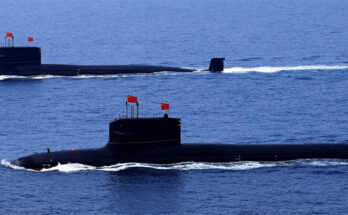
Let’s take a roundabout journey. Trust me, I do have a point.
Sadly, in this world nothing lasts forever: Saturday morning cartoons, American Bandstand, Tab soda (OK, in the latter case, that was a good thing). Change is the only constant in the universe, and it’s mightily annoying.
I recently listened to a podcast where a “guest” said the most extraordinary thing: the U.S. should have never left the Intermediate-range Nuclear Forces (INF) and Anti-Ballistic Missile (ABM) treaties. I was shocked. Could he be serious? “Those treaties guaranteed peace in our time and eliminated the threat of nuclear war,” said the invitee’s booming voice (yes, I am paraphrasing, but you get the gist). Peace?! Forever? How absolutely intriguing.
But then I thought, “Wait, don’t things always change?”
Agreements become outdated, even pointless, like the Washington Naval Treaty. After the War to End All Wars, the “big brains” got together and thought of a way to avoid another one (spoiler, it didn’t work). Their brilliant idea – the Washington Naval Treaty (signed in 1922).
The wily participants – the United States, the United Kingdom, Japan, France, and Italy – agreed to limitations on the construction of battleships, battle cruisers, and aircraft carriers. Later, regulations were placed on submarines. Now that will stop war!
Of course, cheating occurred throughout the treaty’s existence and by some wild estimates helped sow the seeds of another conflict.
Pish-posh and poppycock. Just because certain parties thought the deal unfair is no reason to throw out a perfectly good piece of diplomatic work.
Some spoilsports – (cough) Italy and Japan – left the treaty in the lead-up to the “that wasn’t supposed to occur conflict” – the Second World War. Unfortunately, reimposing this treaty after the fighting ended made little sense, since naval warfare had changed drastically and its signatories did not include the world’s newest superpower – the Soviet Union.
The INF and ABM treaties found themselves in a similar situation after the end of the Cold War. When the world was divided into two major camps, East and West, these treaties made sense. The world made sense! “We don’t have them; you don’t have them. We can’t defend against them; you can’t defend against them. So no one has an advantage. Mutually Assured Destruction (MAD). Sleep soundly in your drafty bunker Ivan, while we capitalists relax in air-conditioned ones.” Then, China joined the party and spoiled everything.
China wouldn’t play by the established rules. Beijing had become the world’s leading producer of tactical- and medium-range ballistic missiles and it wasn’t going to give them up. “Those are your treaties, not ours!”
To make matters worse, other countries decided to purchase or build their own ballistic missiles, some with the range to hit Russia and the United States. The gall! No one wanted to talk about MAD, global stability, or the past hard work of gray-haired diplomats.
So, the INF and ABM treaties faded into the night, along with backyard doomsday bunkers, American Bandstand and ice-cold Tab soda. Maybe the world was safer under the old international order. We may never truly know. Times change. Anyone want a Zima?
For more than 35 years, Larry has been involved in research and analytical work for various Forecast International projects. He has contributed to the Airborne Electronics Forecast and was chief editor on the World Aerospace Weekly newsletter. Larry was directly responsible for the creation of World Weapons Review, a biweekly industry market research publication specializing in weapon systems and related material. He was the creator of Unmanned Vehicles Forecast, launched to cover the growing market for civil and military drones, and was involved in the development of the Airborne Retrofit & Modernization Forecast service. He is currently responsible for the Missile Forecast and for FI's two Unmanned Vehicles Forecast services – Airborne Systems and Land & Sea Systems.




